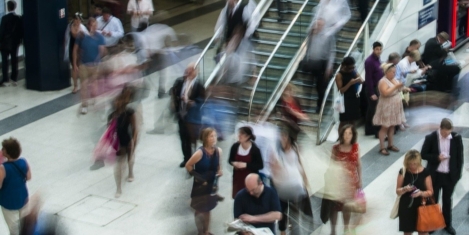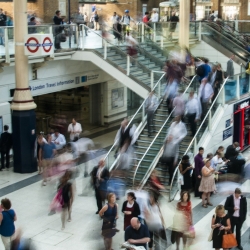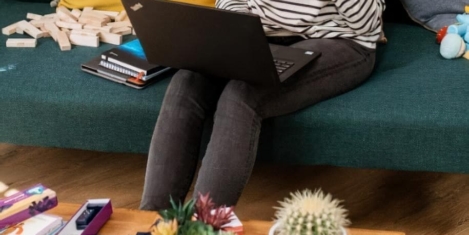To provide the best experiences, we use technologies like cookies to store and/or access device information. Consenting to these technologies will allow us to process data such as browsing behaviour or unique IDs on this site. Not consenting or withdrawing consent, may adversely affect certain features and functions.
The technical storage or access is strictly necessary for the legitimate purpose of enabling the use of a specific service explicitly requested by the subscriber or user, or for the sole purpose of carrying out the transmission of a communication over an electronic communications network.
The technical storage or access is necessary for the legitimate purpose of storing preferences that are not requested by the subscriber or user.
The technical storage or access that is used exclusively for statistical purposes.
The technical storage or access that is used exclusively for anonymous statistical purposes. Without a subpoena, voluntary compliance on the part of your Internet Service Provider, or additional records from a third party, information stored or retrieved for this purpose alone cannot usually be used to identify you.
The technical storage or access is required to create user profiles to send advertising, or to track the user on a website or across several websites for similar marketing purposes.
 Lockdown meant that the choice to work from home was made for us. However, for many the decision to continue to do so post-lockdown will be a personal choice. The question we should all ask ourselves is, whether when we are outside of any lockdown restrictions, is working from home really a workplace revolution or simply an act of selfishness? For thousands of workers who’ve spent years of their lives commuting to offices that feel more like soul-less factories than inspiring and engaging workplaces, it’s no wonder that enforced work from home has proven popular. (more…)
Lockdown meant that the choice to work from home was made for us. However, for many the decision to continue to do so post-lockdown will be a personal choice. The question we should all ask ourselves is, whether when we are outside of any lockdown restrictions, is working from home really a workplace revolution or simply an act of selfishness? For thousands of workers who’ve spent years of their lives commuting to offices that feel more like soul-less factories than inspiring and engaging workplaces, it’s no wonder that enforced work from home has proven popular. (more…)






 ‘Stress by Sector’ data released by
‘Stress by Sector’ data released by 
 There’s no question that many people now, feeling the weight of lockdown 3 and with no clear view on the timing of any sort of ‘return to normal’, are finding it tough to stay motivated. Many are burnt out. We can gain some insight into what is going on for many individuals by way of neuroscience, specifically how the brain works and how it copes with changing situations.
There’s no question that many people now, feeling the weight of lockdown 3 and with no clear view on the timing of any sort of ‘return to normal’, are finding it tough to stay motivated. Many are burnt out. We can gain some insight into what is going on for many individuals by way of neuroscience, specifically how the brain works and how it copes with changing situations. 
 While workers in the UK have been working from home, if they can, for almost a year, a third say they miss commuting, claims research from recruiter
While workers in the UK have been working from home, if they can, for almost a year, a third say they miss commuting, claims research from recruiter 
 A new 30-storey office tower with green walls and roof nestling next to London’s walkie talkie building has been approved by the
A new 30-storey office tower with green walls and roof nestling next to London’s walkie talkie building has been approved by the 
 A new generation of long-term homeworkers created by COVID-19 is at risk physically and mentally through inadequate employer support, claims research by
A new generation of long-term homeworkers created by COVID-19 is at risk physically and mentally through inadequate employer support, claims research by 
 Recently lighting control firm Prolojik assembled an expert panel to talk about learning and working during the time of the Covid-19 pandemic. The roundtable (online of course) involved participants from various fields related to the built environment including those involved in developing, designing and tech reflected on their own experiences over the last several months. While industry issues raised during the session included what productivity really means and how to measure it, what infrastructure needs to be in place to enable people to return to their place of work or education and why a joined-up approach to wellness is an indisputably necessary strand of building management.
Recently lighting control firm Prolojik assembled an expert panel to talk about learning and working during the time of the Covid-19 pandemic. The roundtable (online of course) involved participants from various fields related to the built environment including those involved in developing, designing and tech reflected on their own experiences over the last several months. While industry issues raised during the session included what productivity really means and how to measure it, what infrastructure needs to be in place to enable people to return to their place of work or education and why a joined-up approach to wellness is an indisputably necessary strand of building management. 
 New research from
New research from 


 With primary and secondary schools closed to the majority of pupils as of 5 January 2021, many working parents have found themselves with an impossible task. How to juggle a full day of home schooling with a full day of work, all whilst in lockdown?
With primary and secondary schools closed to the majority of pupils as of 5 January 2021, many working parents have found themselves with an impossible task. How to juggle a full day of home schooling with a full day of work, all whilst in lockdown? 







February 3, 2021
COVID-19 is having an unequal impact on the mental health of workers
by Brendan Street • Comment, Wellbeing